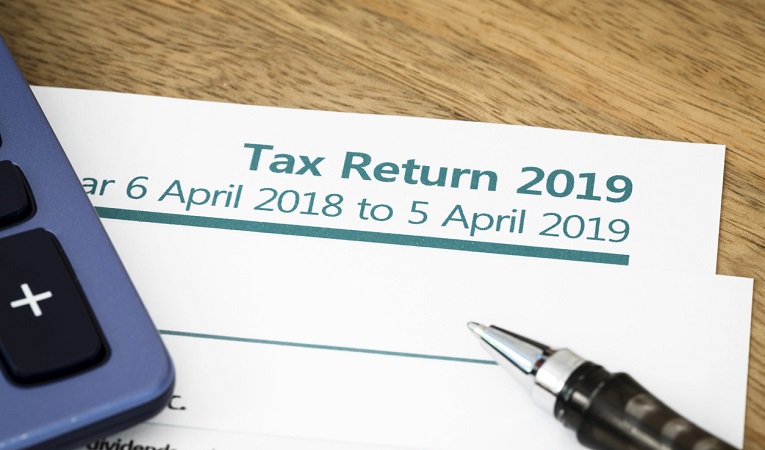A guide to the Self-Employment Income Support Scheme

Posted: Tue 14th Jul 2020
_The government's Self-Employment Income Support Scheme (SEISS) provides grants to self-employed individuals affected by coronavirus. Here's a summary of the official guidance for how the scheme operates. Applications for the first grant through SEISS have now closed. Applications for a second grant are open until 19 October 2020.
**We recommend that you also read the full official government guidance here.
------**_
UPDATE: The Self-Employment Income Support Scheme has been extended
The second grant is available until 19 October 2020. You can claim for the second grant even if you did not make a claim for the first grant.
If you're eligible, the second grant will be a taxable grant worth 70% of your average monthly trading profits, paid out in a single instalment covering a further three months' worth of profits, and capped at £6,570 in total.
HMRC will work out eligibility the same way as the first grant. If you make a claim for the second grant you will have to confirm your business has been adversely affected on or after 14 July 2020.
This government has also said that self-employed parents who did not submit a tax return for 2018/2019, or whose trading profits in 2018/19 were less than their other income (and were therefore ineligible for the SEISS) because they were pregnant or taking time out of their trade to care for their new-born or newly adopted child will now be able to claim for both the first and second SEISS grant, as long as they meet the other standard eligibility criteria.
In addition, self-employed army, navy and air force reservists who did not file a tax return for 2018-19 or did file a return but failed the profits test due to salary and compensation paid by the Ministry of Defence for their services as a reservist (which they undertook for at least 90 days) will be able to claim for the SEISS, as long as they meet the other standard eligibility criteria.
For those who have become eligible under these scenarios, HMRC will use either the 2017/18 or both 2016/17 and 2017/18 self-assessment returns as the basis for eligibility and grant calculation. Applicants can make a claim for the first SEISS grant, the second SEISS grant, or both (depending on when their businesses may have been adversely affected by COVID-19) when applications for the second grant open on 17 August.
------
Summary of Self-Employment Income Support Scheme
The scheme allows you to claim a second and final taxable grant worth 70% of your average monthly trading profits, paid out in a single instalment covering three months' worth of profits, and capped at £6,570 in total.
The grant will be subject to income tax and National Insurance contributions but does not need to be repaid.
If you receive the grant you can continue to work, start a new trade or take on other employment including voluntary work, or duties as an armed forces reservist.
You can make a claim for Universal Credit while you wait for the grant, but any grant you receive will be treated as part of your self-employment income and may affect the amount of Universal Credit you get. Any Universal Credit claims for earlier periods will not be affected.
You cannot make a claim yet. HMRC will contact eligible individuals.
You can make a claim for the second grant if you're eligible, even if you did not make a claim for the first grant.
Directors or employees who are paid through PAYE may be able to get support using the Coronavirus Job Retention Scheme.
Who can claim
You can claim if you're a self-employed individual or a member of a partnership and your business has been adversely affected on or after 14 July 2020.
Your business could be adversely affected by coronavirus if, for example:
you're unable to work because you:
are shielding
are self-isolating
are on sick leave because of coronavirus
have caring responsibilities because of coronavirus
you've had to scale down, temporarily stop trading or incurred additional costs because:
your supply chain has been interrupted
you have fewer or no customers or clients
your staff are unable to come in to work
one or more of your contracts have been cancelled
you had to buy protective equipment so you could trade following social distancing rules
All of the following must also apply:
you traded in the tax year 2018 to 2019 and submitted your Self Assessment tax return on or before 23 April 2020 for that year
you traded in the tax year 2019 to 2020
you intend to continue to trade in the tax year 2020 to 2021
you carry on a trade which has been adversely affected by coronavirus
Your trading profits must be no more than £50,000 and more than half of your total income for either:
the tax year 2018-2019
the average of the tax years 2016-2017, 2017-2018, and 2018-2019
Agents must not apply on behalf of their clients. This will trigger a fraud alert and result in significant delays to receiving payment. Impacted clients will have to contact HMRC separately to resolve.
How much you'll get
You'll get a taxable grant based on your average trading profit over the three tax years 2016-2017, 2017-2018 and 2018-2019.
HMRC will first look at your 2018 to 2019 Self Assessment tax return.
If you're not eligible based on the 2018 to 2019 Self Assessment tax return HMRC will look at the tax years 2016-2017, 2017-2018, and 2018- 2019.
To work out the average trading profit, HM Revenue & Customs (HMRC) will add together your total trading profits or losses for the three tax years then divide by three.
If you have not submitted Self Assessment tax returns for all three years, HMRC will work out your average trading profit based on continuous periods of self-employment, which will be either:
the tax years 2017-2018 and 2018-2019
the tax year 2018-2019 only, even if you were self-employed in the tax year 2016-2017
The second grant is worth 70% of your average monthly trading profits, paid out in a single instalment covering three months' worth of profits, and capped at £6,570 in total. The grant will be paid directly into your bank account, in one instalment.
There is a more detailed guide on how HMRC works out total income and trading profits for the Self-employment Income Support Scheme here.
How different circumstances affect the scheme
Check here if your circumstances affect your eligibility for the following:
if your return is late, amended or under enquiry
if you're a member of a partnership
if you had a new child
if you have loans covered by the loan charge
if you claim averaging relief
if you're non-resident or chose the remittance basis
if you're a military reservist
state aid
adversely affected examples
How to claim
The online service for making a claim is here. It will close on 19 October 2020.
If you are told you that you're not eligible it is likely because the information you or your accountant provided to HMRC tells the government that you are ineligible. If you do use an accountant, please discuss this with them. You can also ask HMRC to review this after you've used the eligibility checker.
If you're unable to claim online an alternative way to claim will be available.
When you make your claim, you'll need your:
Self Assessment Unique Taxpayer Reference (UTR) number. If you do not have it, find out how to get your lost UTR number
National Insurance number. If you do not have it, find out how to get your lost National Insurance number
Government Gateway user ID and password
bank account number and sort code you want HMRC to pay the grant into (only provide bank account details where a Bacs payment can be accepted)
You'll have to confirm to HMRC that your business has been adversely affected by coronavirus.
If you claim the grant HMRC will treat this as confirmation you're below the state aid limits.
HMRC will check claims and take appropriate action to withhold or recover payments found to be dishonest or inaccurate.
Agents must not apply on behalf of their clients. This will trigger a fraud alert and result in significant delays to receiving payment. Impacted clients will have to contact HMRC separately to resolve.
After you've claimed
You will be told immediately if your grant is approved. The money will be paid into your bank account within six working days.
You must keep a copy of all records in line with normal self-employment record keeping requirements, including:
the amount claimed
the claim reference number for your records
evidence that your business has been adversely affected by coronavirus
You will need to report the grant:
on your Self Assessment tax return
as self-employed income for any Universal Credit claims
as self-employed income and that you're working 16 hours a week for any tax credits claims
You will only be able to claim using the official GOV.UK online service. If you receive texts, calls or emails claiming to be from HMRC, offering financial help or a tax refund and asking you to click on a link or to give personal information, it is a scam.
We recommend that you also read the full official government guidance here and watch the video below.
The latest coronavirus support information
We are keeping you updated on the latest information on how to access the government's coronavirus business support here. You can also find advice and ask a question on Enterprise Nation's coronavirus business advice hub. Follow Enterprise Nation on Twitter too for updates.

